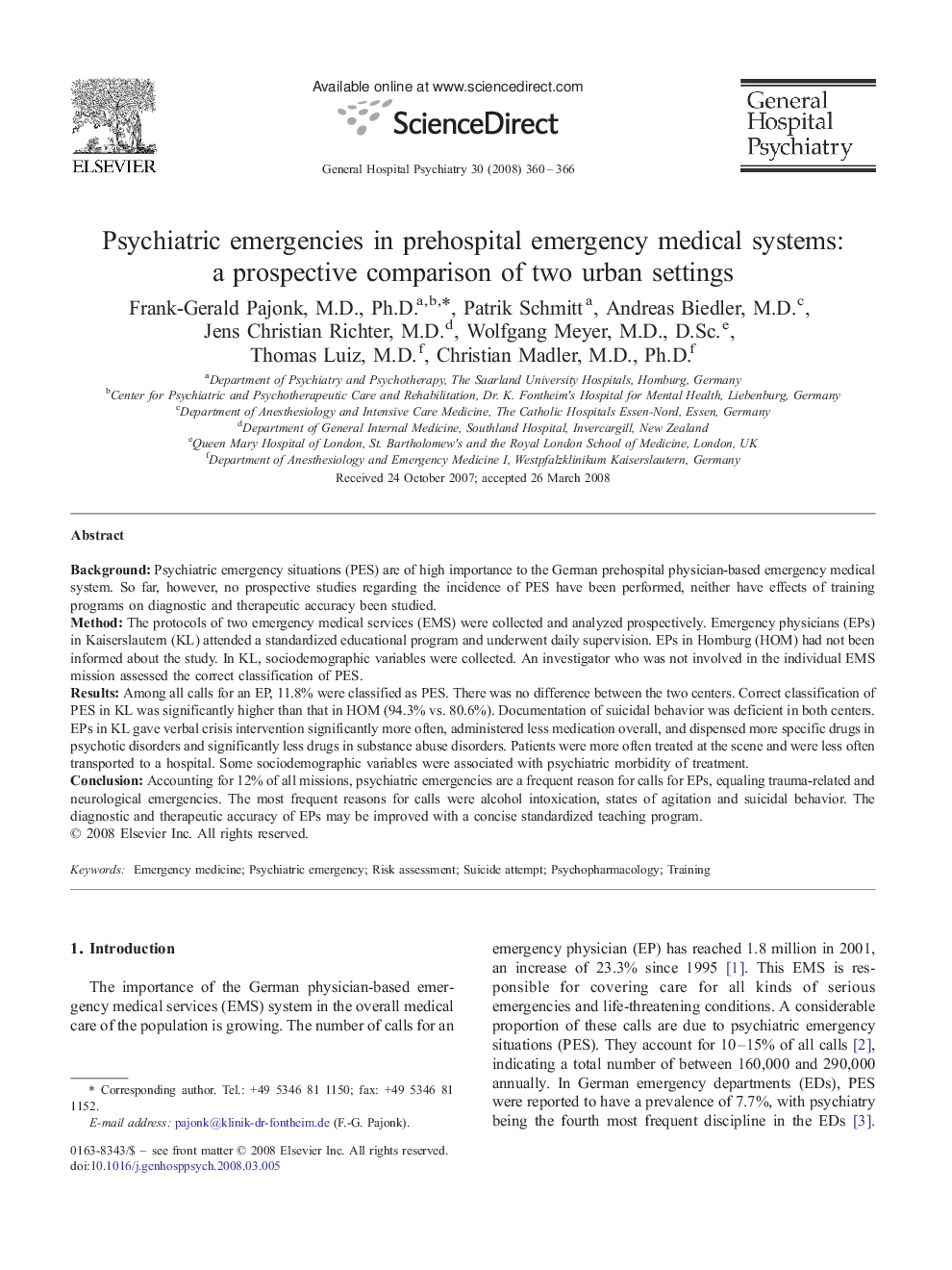| Article ID | Journal | Published Year | Pages | File Type |
|---|---|---|---|---|
| 3238261 | General Hospital Psychiatry | 2008 | 7 Pages |
BackgroundPsychiatric emergency situations (PES) are of high importance to the German prehospital physician-based emergency medical system. So far, however, no prospective studies regarding the incidence of PES have been performed, neither have effects of training programs on diagnostic and therapeutic accuracy been studied.MethodThe protocols of two emergency medical services (EMS) were collected and analyzed prospectively. Emergency physicians (EPs) in Kaiserslautern (KL) attended a standardized educational program and underwent daily supervision. EPs in Homburg (HOM) had not been informed about the study. In KL, sociodemographic variables were collected. An investigator who was not involved in the individual EMS mission assessed the correct classification of PES.ResultsAmong all calls for an EP, 11.8% were classified as PES. There was no difference between the two centers. Correct classification of PES in KL was significantly higher than that in HOM (94.3% vs. 80.6%). Documentation of suicidal behavior was deficient in both centers. EPs in KL gave verbal crisis intervention significantly more often, administered less medication overall, and dispensed more specific drugs in psychotic disorders and significantly less drugs in substance abuse disorders. Patients were more often treated at the scene and were less often transported to a hospital. Some sociodemographic variables were associated with psychiatric morbidity of treatment.ConclusionAccounting for 12% of all missions, psychiatric emergencies are a frequent reason for calls for EPs, equaling trauma-related and neurological emergencies. The most frequent reasons for calls were alcohol intoxication, states of agitation and suicidal behavior. The diagnostic and therapeutic accuracy of EPs may be improved with a concise standardized teaching program.
